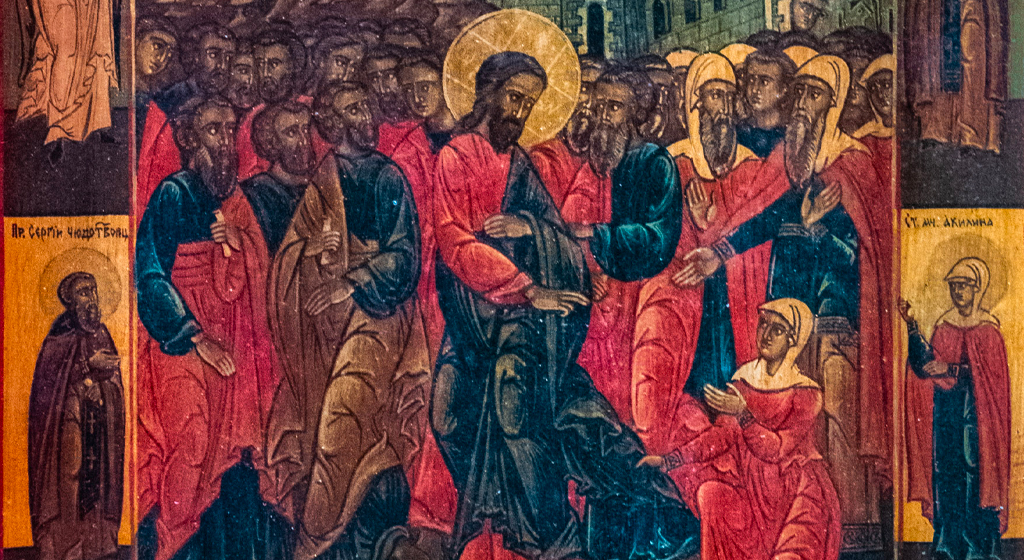Memory of the Poor
Reading of the Word of God
Praise to you, o Lord, King of eternal glory
This is the Gospel of the poor,
liberation for the imprisoned,
sight for the blind,
freedom for the oppressed.
Praise to you, o Lord, King of eternal glory
Luke 4,24-30
And he went on, 'In truth I tell you, no prophet is ever accepted in his own country. 'There were many widows in Israel, I can assure you, in Elijah's day, when heaven remained shut for three years and six months and a great famine raged throughout the land, but Elijah was not sent to any one of these: he was sent to a widow at Zarephath, a town in Sidonia. And in the prophet Elisha's time there were many suffering from virulent skin-diseases in Israel, but none of these was cured -- only Naaman the Syrian.' When they heard this everyone in the synagogue was enraged. They sprang to their feet and hustled him out of the town; and they took him up to the brow of the hill their town was built on, intending to throw him off the cliff, but he passed straight through the crowd and walked away.
Praise to you, o Lord, King of eternal glory
The Son of Man came to serve,
whoever wants to be great
should become servant of all.
Praise to you, o Lord, King of eternal glory
In front of the irritated reaction of the Nazarenes to his first preaching in the synagogue of the village, Jesus responds with a well-known proverb of the time: "No prophet is accepted in the prophet's home town." Jesus is experiencing it first-hand. The reason that make the Nazarenes reject the Gospel preaching is their decision of not allowing Jesus any authority on their lives. There was no room for anyone beyond themselves. He is too similar to them; they know where he comes from and his relatives; he cannot come from on High. But this is the mystery of the Gospel: they are simple and human words, and yet God speaks through them. In those who allow themselves to be moulded by the Gospel, there is a reflection of God's authoritativeness. Faith means looking beyond appearance and trusting the Spirit of God who speaks through His Church and all those who continue to be sent among us. Those who are poor and needy, those who beg for meaning and love, allow the Gospel words and the witnesses of faith to touch their heart. On the contrary, those who are full of pride do not have ears to hear, or mind to understand, or heart to be passionate. They are full of themselves and think they do not need anyone. In front of Jesus revealing their incredulity, the Nazarenes rebelled and tried to kill him by pushing him down the cliff. The Gospel of mercy bothers those who are used to think only about themselves. God's love reaches the poor, like the widow of Zarephath, and the sick, like Naaman, the Syrian. Those who are rich and healthy do not feel the urgency to ask for help. They easily close in their egocentrism and do not care about others. But Luke writes that Jesus went on his way. Even if we want to throw away the Gospel it always remains a source springing eternal life.
